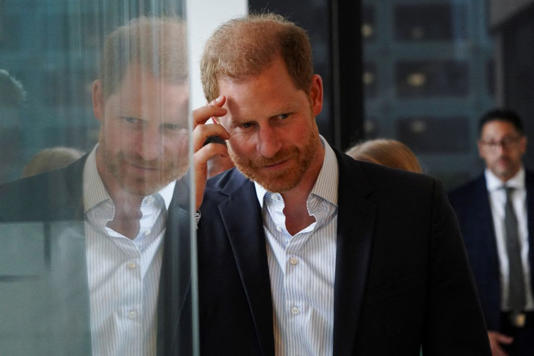Prince Harry’s paperback edition of Spare has failed to capture readers’ attention, reaching only 73rd place in the UK charts.
The Duke of Sussex’s memoir sold just 3,000 copies in its second week following its release on October 24.
The disappointing performance places the book well outside the Official UK Top 50, marking a stark departure from its previous success.
The paperback version was published by Penguin Random House with no updates to its original content.
This stands in sharp contrast to the hardback edition’s record-breaking launch in January 2023, which became Britain’s best-selling book of the year.
The original version sold more than 700,000 copies in the UK alone.
Globally, Spare proved to be an instant publishing sensation, selling over six million copies across print and audio formats worldwide.
The book even secured a Guinness World Record for fastest-selling nonfiction book, with more than 1.4 million units sold on its first day across the US, Canada and UK.
The Duke’s decision not to give any interviews to promote the paperback release likely contributed to its poor performance.
Despite significant royal developments over the past year, including King Charles’s cancer diagnosis and Harry’s brief London visits, the book remained unchanged.
The choice to maintain the original content came as Penguin Random House announced the paperback would be published in 16 languages worldwide.
Some observers have interpreted Harry’s decision not to add new revelations as an olive branch towards his family.
The lacklustre sales become particularly apparent when compared to other current bestsellers.
Richard Osman’s latest novel achieved 12,000 copies sold during the same period.
Meanwhile, Jeremy Clarkson’s “Diddly Squat: Home To Roost” sold almost 10,000 copies.
The figures show a significant gap between Spare’s paperback performance and its competitors, with both authors selling several times more copies than Prince Harry’s memoir.
Upon its initial release, the book was heavily discounted in UK stores, selling for £14 instead of the recommended £28.
However, the first US printing ran to two million copies, with additional prints needed to meet demand.
